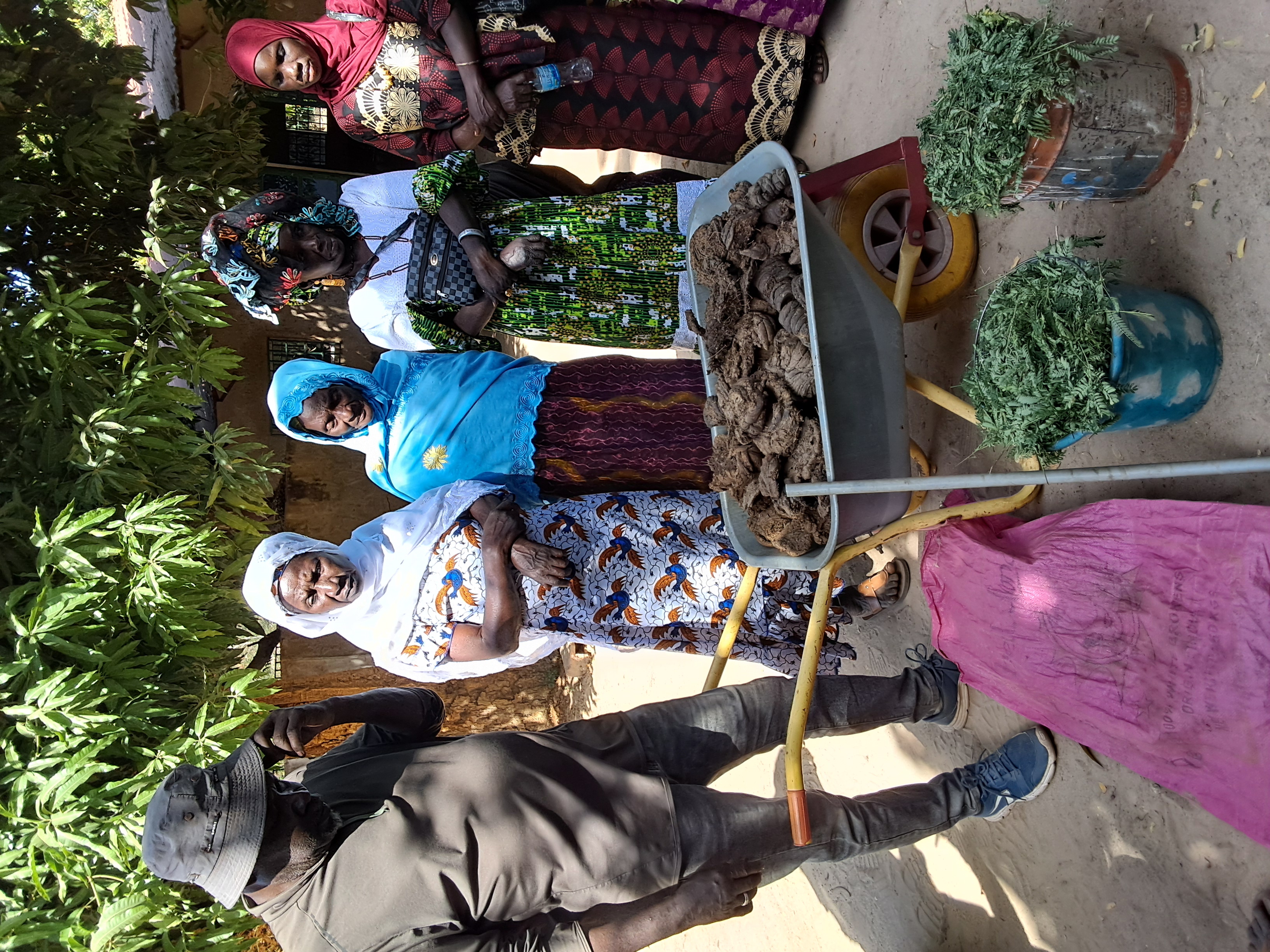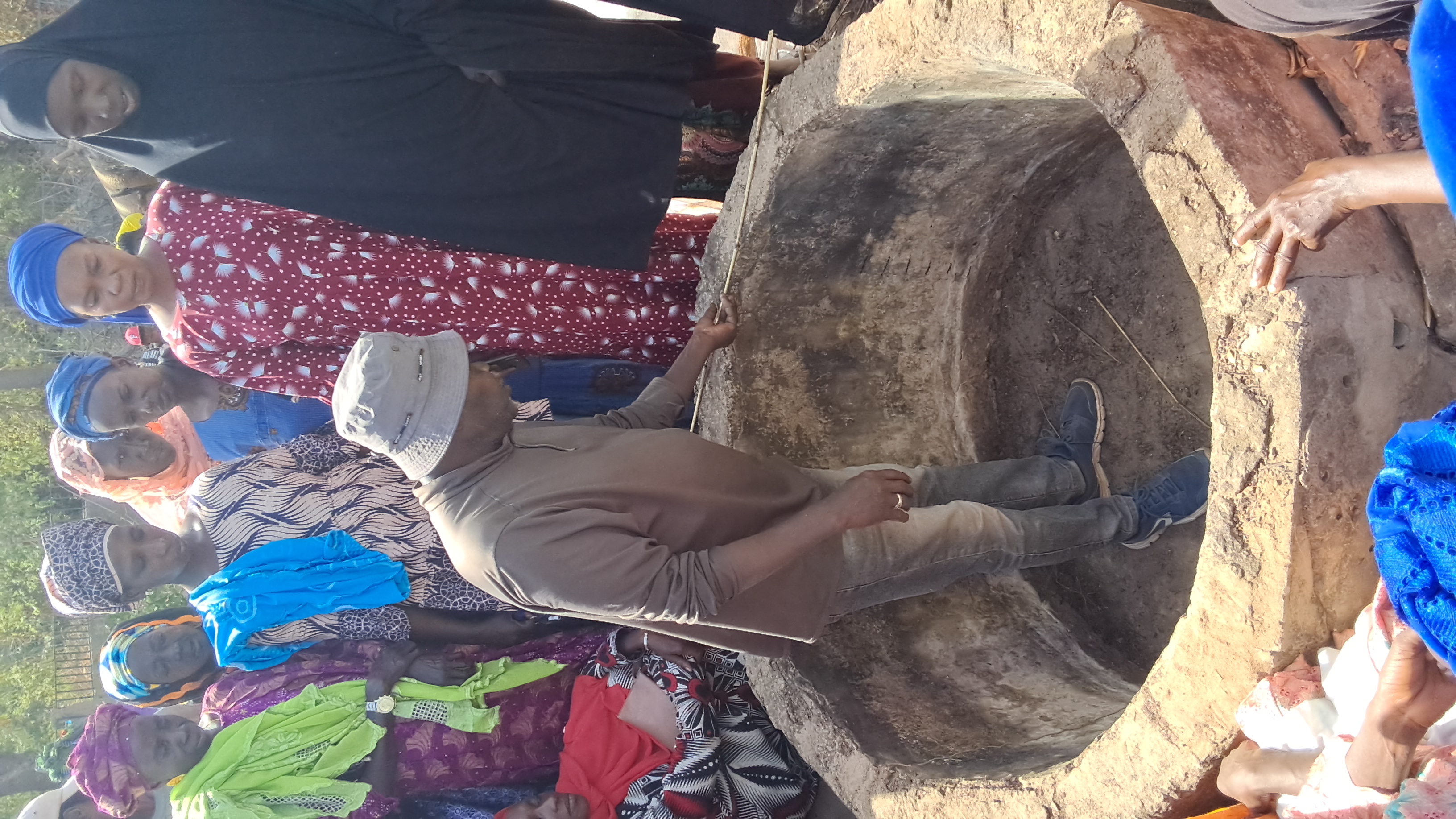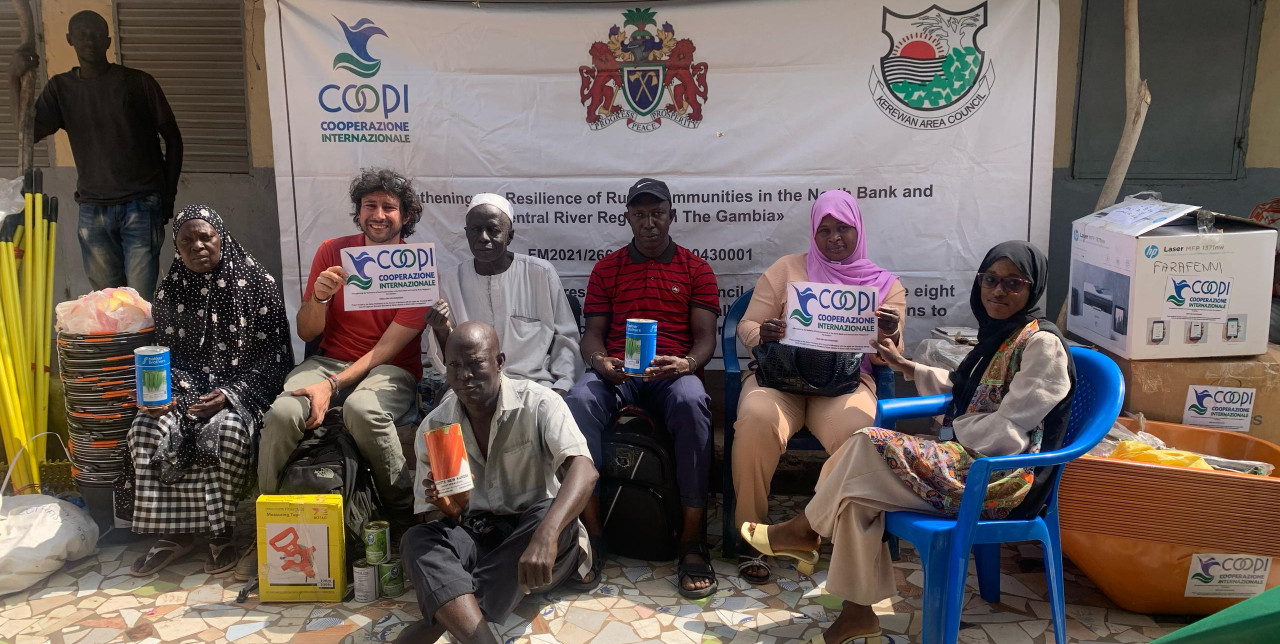26-09-2025 | di COOPI
Gambia. Community gardens to strengthen food security of rural farmers
In The Gambia, COOPI – Cooperazione Internazionale has contributed to improve the living conditions of women and young farmers in marginal areas through the project “Strengthening the Resilience of Rural Communities in the North Bank and Central River Regions of The Gambia”, funded by the Italian Prime Minister's Office through the ‘Otto per Mille’ initiative. The project, which was implemented from May 2024 to September 2025, focused on strengthening food security and enhancing the economic resilience of Gambian communities through participatory local development and the promotion of sustainable agriculture.
COOPI team adopted a participatory approach with six local communities - Farafenni, Bereto, Kerewan, Bunaidu, Essau, and Njoben - aimed at reinforcing their economic resilience and tackling migration flows. In particular, the project worked to improve food security and the livelihoods of vulnerable women and young farmers by creating employment opportunities in the agricultural sector. As a result, local communities have been able to purchase food not available in local markets, completing their own production.

The project supported the development of six community gardens, now considered by the communities a reliable source of food and income. More than 200 people were mobilized, primarily through cash-for-work schemes and capacity-building initiatives for women farmers. Through these cash-for-work activities, community members earned wages while implementing water systems, storage facilities, and fencing, thereby directly contributing to the expansion of the community gardens.
The initiative began with the distribution of agricultural tools and seeds, followed by some lessons at the Njawara Agricultural Training Centre for a group of community members. Participants received intensive training on food processing techniques, compost management, efficient irrigation systems, and cooperative leadership. After the training, beneficiaries were provided with agricultural inputs to put their new skills into practice, starting cultivation activities in the community gardens. The distributed materials—selected on the basis of a thorough needs assessment carried out with the communities—included hand tools, watering cans, wheelbarrows, rakes, hoes, seed kits, and other essential equipment to boost production capacity. In total, the project reached more than 1,000 direct beneficiaries and, indirectly, over 14,000 inhabitants across the six communities.

COOPI has been active in The Gambia since 2018 where it intervenes to raise awareness about gender equality and the risks of migration, assisting returning migrants and in particular taking care of the mental health and psycho-social wellbeing of those who have suffered violence along the route to Europe. To date, more than 1,500 people have benefited from COOPI's work in this country.




 Gambia
Gambia